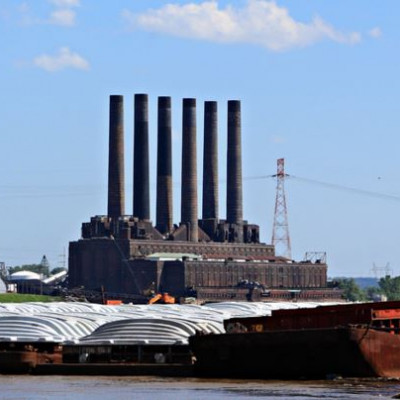April 30, 2018
April 2018 at Policy Integrity:
- Defending Vehicle Fuel-Efficiency Standards
- Fighting Repeals of Major Pollution Regulations
- Considering Climate Costs in Electricity Policy: Energy Storage and Capacity Markets
- State and Regional Climate Policy: New York, California, Virginia
- Pipeline and Coal Mining Approvals: Quantifying Climate Costs
- Upcoming Articles: Regulation and Distribution, and the Next Battleground of Climate Change Regulations
-

Defending Vehicle Fuel-Efficiency Standards
The Trump administration is attempting to weaken fuel-efficiency rules for cars and light trucks, both by decreasing the stringency of these standards and reducing the penalties for automakers that violate the standards. Our recent research and advocacy counter the arguments made by agencies to justify these rollbacks. Our policy brief explains that EPA has no evidence to support its claim that the fuel-economy standards that have been set through Model Year 2025 are too stringent. Our research shows that these standards can be met at a low cost while bringing large benefits to consumers. Policy Integrity also filed an amicus brief and expert affidavit in the U.S. Court of Appeals for the Second Circuit challenging the National Highway Transportation Safety Administration’s decision to keep higher penalties for violation of the fuel-economy standards from going into effect. In our brief and affidavit, we spelled out the harms to consumers and the environment from NHTSA’s decision. Shortly after argument, the Second Circuit vacated NHTSA’s rule, reinstating the higher penalties.
-

Fighting Repeals of Major Pollution Regulations
Federal agencies continue to seek to repeal or modify regulations that prevent air and water pollution, and we filed public comments with EPA and the Bureau of Land Management (BLM) that underscore the flawed economic and legal arguments for these deregulatory actions.
In our comments on the proposed repeal of the Clean Power Plan, we reiterate that EPA had the legal authority to issue this rule. The proposed repeal also manipulates data to make the policy seem costly to industry while understating forgone benefits to the public.
In our comments on EPA’s proposal to weaken standards for coal ash disposal, we take issue with EPA’s claim that its proposed changes will not increase health and environmental risks.
In our comments on BLM’s Waste Prevention Rule, we argue that the agency failed to appropriately value the Social Cost of Methane (SCM) and other forgone benefits that would result from the rule’s rescission.
In our joint comments with major environmental organizations on EPA’s proposed withdrawal of its control techniques guidelines for the oil and gas industry, we similarly illustrate how the withdrawal’s climate costs, as calculated with the SCM, would outweigh its benefits.
-

Considering Climate Costs in Electricity Policy: Energy Storage and Capacity Markets
Many states are taking action on climate change, and electricity regulators must work to integrate clean energy technologies into the electric system to meet these goals. Our new reports on energy storage and wholesale electricity markets give regulators tools for how to handle these changes while increasing economic efficiency.
Our report, Managing the Future of Energy Storage, explores situations in which energy storage systems can lead to increased emissions, and offers reforms to correct for poor incentives while ensuring that energy storage can provide the maximum benefit possible to the grid.
Capacity Markets and Externalities argues that current proposals to redesign wholesale electricity markets in reaction to state climate policies, which seek to correct for market failures associate with air pollution, will likely harm rather than help the functioning of these markets.
-

State and Regional Climate Policy: New York, California, Virginia
Our comments to electricity regulators and states pursuing climate action offer suggestions for improving the economic efficiency of their programs.
Our presentation to the New York Independent Service Operator (NYISO), which manages the flow of electricity across New York State, advocated for using the Interagency Working Group’s Social Cost of Carbon (SCC) in carbon pricing within the wholesale market. NYISO has since proposed to use the SCC in its recent carbon pricing proposal.
Our comments to Virginia on its proposal to join the Regional Greenhouse Gas Initiative (RGGI), a carbon trading program that currently includes states across the Northeastern U.S., offer suggestions to ensure that Virginia’s addition to RGGI maintains the competitiveness of the permit-trading market.
Our comments to the California Public Utilities Commission commend the agency for its plan to compare the net benefits of different distributed energy resources (DERs), like rooftop solar installations and consumer energy storage systems, when planning policy to integrate these resources into California’s electric system. We also provide suggestions for refining how the state quantifies the environmental benefits of DERs.
-

Pipeline and Coal Mining Approvals: Quantifying Climate Costs
In our recent comments on environmental assessments for pipeline and mining projects, we criticize federal agencies’ lack of transparency about climate change effects. In each analysis, the agencies quantify the tons of greenhouse gas emissions related to the project but fail to communicate the economic costs of climate change by monetizing these emissions. We argue that this is unlawful, especially when agencies weigh the economic benefits to industry of increasing fossil fuel development. We submitted joint comments with major environmental organizations to the Federal Energy Regulatory Commission (FERC) on New Jersey’s Rivervale South to Market Pipeline, to FERC on Oklahoma’s Midcontinent Supply Header Interstate Pipeline, and to the Office of Surfacing Mining Reclamation and Enforcement on Montana’s Bull Mountain Coal Mine.
-

Upcoming Articles: Regulation and Distribution, and the Next Battleground of Climate Change Regulations
In two forthcoming articles, Richard Revesz tackles major questions in regulatory policy. Regulation and Distribution, forthcoming in the NYU Law Review, addresses how the administrative state can seriously take account of the distributional consequences of regulation. Environmental Standards, Thresholds, and the Next Battleground of Climate Change Regulations (co-authored with Kimberly Castle), forthcoming in the University of Minnesota Law Review, responds to attacks on the use of air pollution co-benefits to justify climate change regulations. Following an examination of the scientific literature, longstanding agency practices under administrations of both major political parties, and judicial precedent, the authors conclude that particulate matter benefits deserve a meaningful role in regulatory cost-benefit analysis of climate policies.
